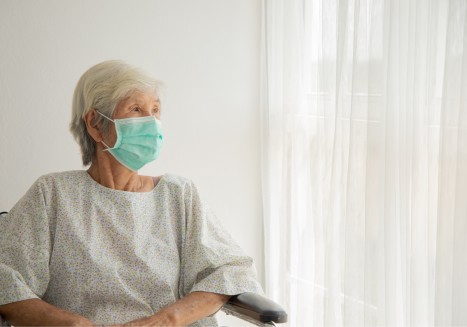RSV Virus: Key Information for Adults and Seniors

Although the RSV virus may be unfamiliar to many, it is commonly known for causing illness in young children. However, older adults are also at risk, and in their case, the disease can be severe. RSV infects the lower respiratory tract, including the bronchi and lungs. Seasonal changes and specific virus characteristics can exacerbate symptoms. Early detection, symptom monitoring, and timely medical consultation at hospitals like Ramkhamhaeng Hospital are vital for risk reduction.
Causes of RSV Infection
RSV is highly contagious and spreads mainly via respiratory droplets. Infection occurs through:
- Nose, mouth, or eyes
- Contact with secretions from an infected person or contaminated surfaces
- Crowded environments
Symptoms of RSV
Elderly individuals and those with chronic illnesses are more vulnerable. Symptoms often resemble the common cold but may be more intense and longer-lasting, typically:
- High fever
- Persistent cough
- Shortness of breath
- Increased phlegm
- Fatigue
In adults, symptoms usually last under a week. However, people with chronic bronchitis, asthma, or COPD may experience prolonged symptoms lasting weeks or months.

Severity in Older Adults
Older adults, particularly those with weakened immune systems or pre-existing conditions, face a higher risk of complications, including:
- Pneumonia
- Bronchitis
- Respiratory failure
Preventive care and infection control are essential for reducing these risks.
Diagnosis
If symptoms are present and RSV is suspected, you can see a doctor. Diagnosis typically involves symptom assessment and nasal/throat swab testing. In severe cases, hospitalization may be required. Note that test sensitivity ranges from 53% to 96% and is available only at select hospitals.
Recurrence and Transmission
RSV can recur even after recovery. It can be transmitted from children to adults and especially affects those with underlying conditions like lung or heart disease or weakened immunity, sometimes fatally.

Treatment and Prevention
There is now an effective RSV vaccine for both children and adults that helps prevent infection and reduce severity and complications. For older adults, it is recommended alongside other vaccines, such as the flu shot.
Infection prevention measures include:
- Regular handwashing with soap or alcohol-based gel
- Wearing face masks
- Cleaning toys and frequently touched surfaces
- Isolating sick individuals and avoiding shared personal items
- Maintaining a healthy diet and sufficient rest
Early detection and medical attention reduce the risk of complications.
RSV Vaccine (Arexvy)
The Arexvy vaccine stimulates immunity to prevent Lower Respiratory Tract Disease (LRTD) caused by RSV. A single-dose vaccine can significantly reduce the risk of severe illness.
Target groups:
- Individuals aged ≥50 with chronic lung conditions or asthma
- General population aged ≥60
- Those with comorbidities (e.g., heart disease, diabetes, kidney/liver disease, immune deficiencies)

Vaccination Guidelines
- Can be administered with the inactivated quadrivalent influenza vaccine
- Inject at different sites if given alongside other vaccines
- Monitor for allergic reactions post-injection
- Delay vaccination in cases of acute high fever, but not for mild illnesses
- Note that the immune response varies by individual
- Observe for anxiety-related reactions during vaccination (e.g., fainting, rapid breathing)
Benefits of RSV Vaccination
- Enhances immunity against RSV
- Reduces severity of symptoms and need for hospitalization
- Prevents serious complications such as pneumonia and bronchiolitis
- Decreases mortality risk, especially among seniors and high-risk individuals
Precautions
- Contraindicated in individuals allergic to vaccine components
- Caution in those with low platelets or bleeding disorders
- Not recommended during pregnancy or breastfeeding
- Possible mild side effects: pain, swelling, redness, fever, or chills
Conclusion
Timely prevention and treatment of RSV—especially through vaccination and hygiene practices—are essential in reducing disease severity, complications, and transmission among vulnerable groups.






